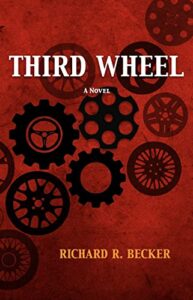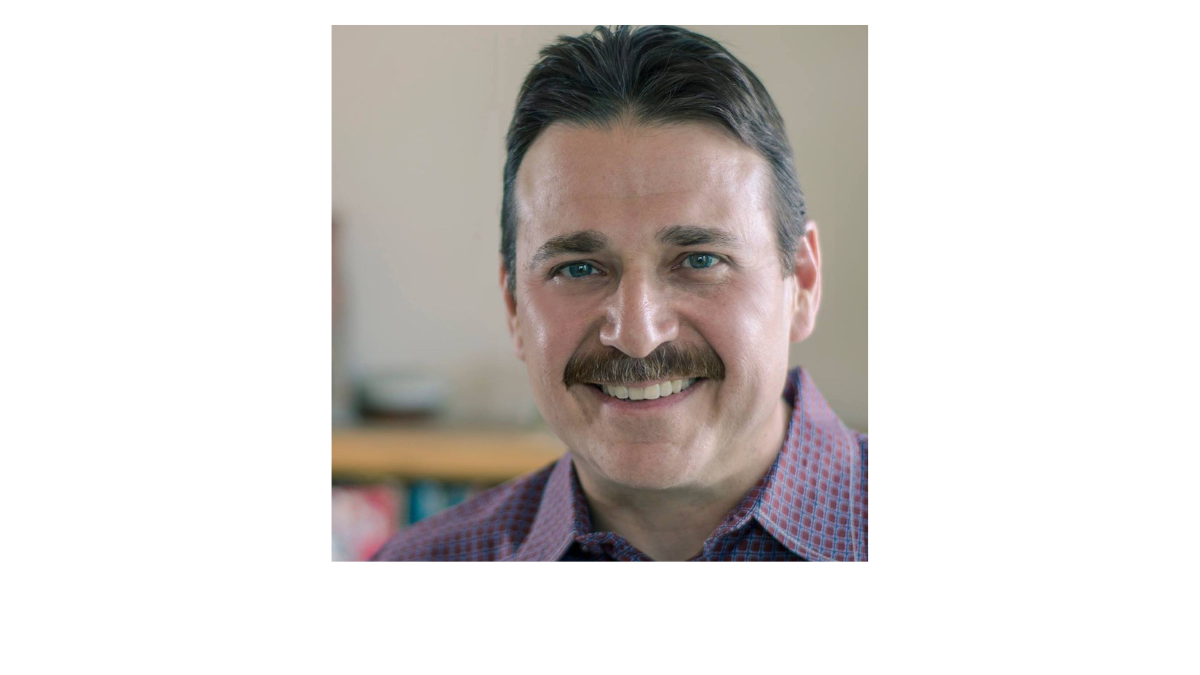Jukebox Time is today featuring author Richard R. Becker. Delving deep into the intricacies of identity and the fragility of human relationships, his latest novel Third Wheel is a poignant exploration of a young boy’s search for belonging. Join us in this exclusive interview with this four-time award-winning author.
Welcome to Jukebox Time! Your novel delves deep into themes of belonging and identity. What personal experiences or observations influenced your portrayal of the protagonist’s journey?
It’s great to be invited! Thank you.
Third Wheel originally came about as a short story. And like many writers, I borrow and bend altered bits of life to help inform the characters or circumstances. With Brady Wilks, I borrowed a little more than usual. His initial framework mirrors much of my childhood.
Although Third Wheel is fiction, we both lost our fathers very young. We were both raised by grandparents. We both lost grandmothers to cancer and were reunited with our mothers. We both moved from the Midwest to Las Vegas and experienced an identity crisis and culture shock that compounded the struggles we had at home.
The original short story focused on a friendship dynamic that developed out of his unstable home life. As soon as I finished it, I could see second, third, and fourth chapters. So, I set aside my short story project and invested the next 24 weeks in fleshing out what would become the draft of my debut novel.
The setting of the book seems to play a significant role in shaping the narrative. How did you choose this particular setting, and what research did you undertake to bring it to life?
Third Wheel takes place in the summer of 1982, just a few months before Frank “Lefty” Rosenthal’s car was bombed in the fall. Some people might remember it from a scene in the movie “Casino,” which is based on a true story. In real life, the bombing represents one of several pivotal moments when the Mob was losing control of Las Vegas.
There was a power struggle between them, law enforcement, corporations, cartels, and feds. We saw the stories in newspapers and nightly news every day. We went to school with kids whose parents were part of it. Nobody talked about it, but we all knew the score.
Brady Wilks and his friend group only brush up against the fringe of it. The Las Vegas I wrote about in the book isn’t the one most people think about. It mostly occurs in the dusty suburbs and outlying desert where I grew up.
Can you share any personal connections or experiences that you drew upon while crafting the character of Brady Wilks?
Like Brady, I struggled at home and didn’t fit in at school. I arrived in Las Vegas in the middle of a school year. The kids in the neighborhood had to take a bus to a sixth-grade center in west Las Vegas, which was the area’s attempt to integrate schools. From first through fifth grade and seventh through twelfth grade, kids from west Las Vegas were bused to schools in our neighborhoods. The practice finally ended in the 1990s when west Las Vegas families boycotted busing altogether.
It was an awkward introduction that immediately alienated me from kids my own age. By the following summer, I opted for an older, tougher crowd. When kids don’t have the structure they need at home, they sometimes look for acceptance wherever it’s easiest. Passing around a bottle is pretty easy.
 As a four-time award-winning author, you have a wealth of experience in the literary world. What writing tips or advice would you offer to budding authors?
As a four-time award-winning author, you have a wealth of experience in the literary world. What writing tips or advice would you offer to budding authors?
I started my literary career a few years ago, so I’m still a novice in many ways. I suppose I had an advantage because I’ve also had a career as a professional copywriter, journalist, and communication strategist for more than three decades. I also taught writing classes for marketing and public relations for 20 years before retiring from teaching classes.
I spent most of my life writing other people’s stories and teaching other people how to do the same. When it came time for me to write my own stories, I wanted to do it right. I followed the direction of Ernest Hemingway and John Updike and set out to write straight, honest prose about human beings. I suggest they do the same, even if their plots are grounded in something fantastical. Be real.
Every author has a unique creative process. Can you walk us through yours? Do you have any rituals or habits that help you get into the writing zone?
I do have a writing routine. I wake up in the morning, eat a light breakfast, work out, and then sit in front of my computer with a hot cup of coffee, black. When writing fiction, I set Monday aside to start a new project — a new story or chapter. I write as much as I can on Monday and then work on it on and off between client work for the rest of the week, finishing the draft by Sunday so I can start over again.
A fun little sidebar: my chair sits on a partial rug map of the World of Greyhawk, which is a fictional world known by many people who play Dungeons & Dragons. Brady Wilks is a fan of the game. He even tries to make sense of the world by looking at life through the lens of a dungeon master. That’s problematic, of course, because the risks he takes are real.
The book touches on breaking away from predetermined paths. Has there been a moment in your own life where you chose to take a leap into the unknown?
My life was one trauma after the next, beginning with my birth. My parents were seventeen and I had the misfortune of being born with club feet. I wore corrective shoes the entire time my relatively poor grandparents raised me, which makes you an easy mark. You learn to fight or flee. I was more apt to fight.
I’m not sure that ever changed. Most people see me as self-determined and unafraid to take risks. My resume would suggest they’re right. But until about ten years ago, I was operating under the same motivation I had as a kid being called out for funny shoes. I had to fight on and keep taking leaps.
What books or authors have inspired you throughout your writing journey?
I was held back in the third grade because I could not read. My seventh-grade reading teacher suspected this because when it was time to do a book report, I picked the book with the thinnest spine. He let me do the report, but then challenged me to read Dune by Frank Herbert. The sleeper had awakened.
By giving me one book outside my comfort zone, that teacher transformed me into an eclectic reader with more than 250 books on my to-read list. Some of the ones who have touched me recently include S.A. Cosby, Jandy Nelson, and Joe R. Lansdale. I’ve also taken some online courses from Joyce Carol Oates, Walter Mosley, and David Mamet. Aside from the greats like Salinger, Kerouac, and Fitzgerald, these writers really get it.
After delving into such a poignant and transformative story, what can your readers expect next from you? Do you have any upcoming projects or books in the pipeline?
Right now, I’m working with Emmy award-winning voice actor and journalist Brian Callanan to produce the audiobook edition of Third Wheel. After that, I’m working on a psychological thriller set in Maine. Some readers familiar with the short story collection 50 States have already read the first chapter. Like Third Wheel, it started as a short story.
I have another novel planned after that and then we’ll see. I can’t work on it next, but something keeps telling me that there is much more to the Brady Wilks story than Third Wheel.
Finally, having explored the themes of betrayal, belonging, and identity so deeply in this novel, what do you hope readers will take away from their experience with the book?
Mostly, I want people to be entertained by Third Wheel. But if they want to take something from it, I hope it’s the knowledge that it’s never too late until it’s too late. No matter how bad things might be, it’s never too late to make a change until it’s catastrophically fatal. So take the leap.
About the author: Richard R. Becker is an award-winning, best-selling American author. His debut collection of literary fiction and psychological thrillers began as a project to write one story a week for 50 weeks. It broke into the top 100 literary short story collections on Amazon for three consecutive months. It also won first place in the ABR Book Excellence Awards, Spring 2022 BookFest Awards, and 2023 Book Excellence Awards, and was a finalist in the IAN Book of the Year Awards. His debut novel was released on August 21, 2023, to overwhelmingly positive reviews.
For more details visit: www.copywriteink.com/author-richard-r.-becker.html
Third Wheel is now available on Amazon: www.amazon.com/dp/B0C2MZ737L

